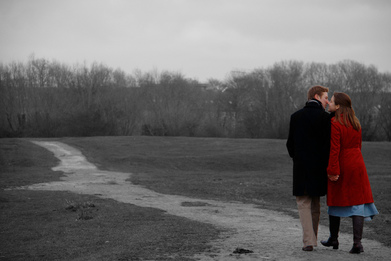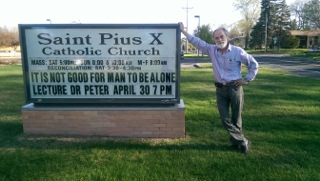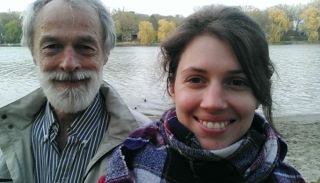|
FOR RADIO LISTENERS
Radio host, author and nationwide speaker Jeff Cavins will interview Dr. Peter on the program “Rediscover Hour” Friday, April 15th at 9 am CST, Relevant Radio, about the roots of marital difficulties and anxiety.
2 Comments
You can contact me at (612) 227-0144 Tuesday, April 12 - Thursday, May 5, 2016 to schedule an appointment or discuss how I can assist you. Looking forward to speaking with you!
I am happy to announce that I will be back in the Twin Cities and available for individual and marital counseling from Tuesday, April 12 through Thursday, May 5th.
You can book just one session, double sessions or a series of sessions during my stay, depending on wishes and needs. If you are interested, contact me at your earliest convenience and let us talk about it and find a plan that is good for you. The phone number I can be contacted at when I arrive in the States is not available yet but will be posted here as soon as I have it. Following my successful visit in the Twin Cities last April I am happy to announce that I will return and make myself available for more counseling services for individual, couples and families in need.
This time I will be in Minnesota for the entire month of October and be available for sessions in the Twin Cities Area during the time period specified above. If you are interested in booking some time please contact me at your earliest convenience so we can find the times that are best for you. I can be reached at 952-217-0605. Again, as always, it will be possible to schedule follow-up sessions via phone or Skype after I return to Denmark. But I will be back for a longer stay by April 2016 and after that hopefully even more frequent.  Let us now as promised try to go a little deeper into the mystery of love and the practical challenge of how to go about finding more of it. We will especially look at how our capacity to love is challenged in marriages. As I pointed out in my previous newsletter # 1 we are facing a huge dilemma here, since we enter into marriage with a greater need to be loved than capacity to initiate it. We simply seek into intimate relationships more in order to get something than to give something. But keep in mind that I am not slamming us people for being cynically self-centered and egoistic people out there to exploit each other. I am simply stating a fact about our existential condition: Just as we all enter into this world as vulnerable infants with nothing to give but a dire need to receive love, in the very same (but more subtle) way do we enter into committed intimate relationships with a dire hope and expectation to be loved. And THEN, when we feel loved, we will love back, with no difficulty. ”Of course I will love you, if you love me - you begin !” This state of affairs now poses a mind-boggling dilemma, a nagging ”riddle” one could say, that I encouraged you to ponder: If we are all running around looking for someone else to love us first, then who in the world is going to begin? And I will give you my answer to this riddle today. Well, somehow for most people the mutual give and take exchange got started in the ”falling in love” phase, when there is much happiness and bliss. Both feel they are getting, and therefore giving. But in reality there is nobody there initiating in a selfless way. Since the dynamic of this love is not based on selfless giving, it is quite unstable. That is why these euphoric and blissful highs of ”being in love” never last. Due to the fact that we have a greater need for receiving love than capacity to give love, sooner or later - in all relationships - we will run into the constellation, where both parties experience a legitimate need to be loved by the other, and a right to request it, at the same time. Hence there is no one there to give anybody anything ! This is what I call the zero-point. Both stand empty handed facing each other, and frustration, disappointment and blame builds in the relationship. Here the altent conflict inbuilt in our condition shows up. Arguments, mistrust, suspicion, cynicism etc. takes over. And that approach for sure send love light-years away. To avoid this we must learn to navigate in this 0-point without becoming un-loving. Why do we become so un-loving ? Because that is a way in which we can overshadow the pain we experience when we face this sudden loss of love. Instead we must embrace the pain and stay with it and ask the master of suffering and longing, Jesus Christ Crucified, to help us with this unfathomable task, which he knows all about from his own passion. We must learn to accept that is is totally ok to not have any love to give in certain moments and phases of our life. However, when we experience a lack of love in our hearts, we can always find something else in there - and that is nothing but a need to BE loved! So when you find yourself unable to love, then go and humbly ask for it, in a loving way, which means without demanding it. For example say this: ”I am so sorry I do not have anything to give you right now, but I need so much for you to hold me or tell me you love me…..but if you do not have anything to give this moment either, then I understand and accept.” This humble way of laying yourself out there to the other in your most vulnerable state IS a true gesture of love in itself. So the liberating paradox that I want to share with you today is the fact, that even when you have no love to give, you can still give yourself with all your longing and needs. Because you will always have a need to be loved, that is a constant. Your heart is never ”empty” if you look deep enough. But you must dare be ”vulnerable.” As I said, this open heart approach is a loving gesture in itself and will most often open the heart of the other person. And then - lo and behold - love will begin to flow again. But you must be patient and not demanding - love can never be forced or manipulated. Love is a gift and can only be given freely. The trick is to navigate through the inevitable zero-point. And I have said a lot about that elsewhere. For now I will sum it all up in the following golden formula that you have probably never heard from anybody else before… It is ok to not be able to love - when you cannot. But it is never ok to be un-loving. God bless you and guide you in this venture ! Dr. Peter  I apologize for the delay of The Art Of Loving - PART II. I have a good excuse, which I will share with you in this brief up-date. Part I was a cliffhanger which left you pondering a profound and disturbing marital problem. Who is going to give love when both are in need of receiving love before they can give it to the other? The Art of Loving, Part II - or as I like to reframe it: The Art of (at least) Not Being Un-loving, will follow in approximately two weeks. Let me now share with you the reason why I have been delayed, because it is good news: I just got back from an incredibly successful and blessed one month mission to Minneapolis/St. Paul, MN. This event was planned over 6 months by some very kind and supportive key persons in the Archdiocese who worked tirelessly and efficiently to pull this off. I spoke to over 500 people in 7 talks about the challenges of marital life. 75 couples showed up for the last talk, which was held at a marriage enrichment dinner. The response to these talks was overwhelmingly positive and many reported that they found new ways of looking at their issues that brought healing. It was a special treat to have my daughter Leah with me at all the speaking engagements, where she took care of the sales of my CDs and booklets. I also did 3 radio interviews with Relevant Radio, one with the nationally known and respected Catholic author, radio host, and founder of a well-known Bible study program, Jeff Cavins, who appreciates my teachings, and I was also on a national program that had about 50.000 listeners at any given moment. Both Leah and I received unbelievably generous and hospitable help from many great networking members of the wellfunctioning Catholic community of the Twin Cities. One family gave me a car to use for free for the entire month (and another family gave Leah one too, so she could go around and do her piano tunings), and we stayed with a few different families who treated us like royalty. This appreciation of my presence and my work in the Archdiocese of Minneapolis/St. Paul was heartwarming and affirming to me. Is this an invitation to move back, maybe? US Catholics who seek healing from a faith-based counseling approach are very dear to me, and I would like to be more present for them. For now, I hope I can go to Minnesota 2-3 times a year for an extended stay (and other parts of the US if invited), and then see where the spirit leads in terms of future plans. My deepest gratitude to everybody involved in making all this happen ! My website and newsletter will keep you posted on my future travels and schedules. Thank you ! In Christ, Dr. Peter  First things first! Therefore I will devote this first post of mine to what I think is the most important issue ever for anyone: love ! We cannot only not live without it, we also can not live good, happy and meaningful lives without it. After more than 40 years as a practicing psychologist I am convinced that most psychological problems – if not all – are rooted in a person´s lack of feeling loved enough at the core. Thus, generally speaking, psychological treatment is all about either helping the afflicted person find love, or help her open up to and receive a love that may already be available. Or both. Love is a very tricky and vulnerable business. There is a lot of confusion, misunderstanding and outright wrong thinking about the phenomenon of love and how to achieve it. You may have heard people say “Love is a decision.” I disagree. If we could all decide to love, we could – and would – change the world to a paradise in an instant. The problem is that we would like to love and be loved, yet we end up choosing or doing un-loving things very often instead. Perhaps it is against our “will,” but nevertheless we cannot help doing un-loving acts. Therefore let us first understand that love has nothing to do with performance. To love is not something we can be good at, like we can become good at running a race, for example. I can easily show you what I mean: Most of you have experienced being in love with another, wonderful, person. When this takes place you experience a flow of love between you and the other. But this flow is not something you are doing, or concentrating on, or straining to do. It flows effortlessly from heart to heart. When I experience this I cannot pound my chest and exclaim proudly: “Oh my, I am really good at loving.” It just happens. It is free and that is one of the reasons why the flow of love is bliss on earth. Love as a gift When something so nice comes to us without our doing, we call it a gift. Love, true love, is precisely that: a gift. Reflecting on this, we will soon sense one of the biggest predicaments about being a human person: the very thing we need more than anything is totally beyond our control! Oops! This explains why we all are vulnerable at the core. Extremely so. You may be surprised to hear me claim “we all” this way. But I firmly believe this. The only thing that differs from person to person is how good we are at hiding it. You can use this insight right away to feel better the rest of your day – and perhaps even the rest of your entire life: if you think you are a vulnerable person – and/or have been told you are ( with a slightly critical attitude), do not feel bad about it. It is part of your existential baggage to be vulnerable or sensitive, which many people do not understand – or want to accept. Trying to deny or hide our true nature will only make us more fragile. I have seen thousands of clients over the years struggling with this. If someone is trying to be psychoanalytically “helpful” by diagnosing you as “over-sensitive”, just ask how they can be sure that it is not they who are “under-sensitive?” As a rule of thumb, do remember one of my simple psycho-doctrines (pd): “True mental and spiritual strength begins with accepting and embracing our true vulnerability.” I know this is one of these Dr. Peter ESTDs (easier said than dones). But somebody has to say it. So think about it, rather more often than not. And if you cannot make it work – ask for help. Let us explore the huge need for love issue some more. Where does it come from? We are born with it. Big time. Think of a newborn infant, the most vulnerable being you can imagine in the whole cosmos. No other newborn creature in creation is as vulnerable and in need of love and care as much as the human infant. Notice the implication here: We are born with a need to be loved by the other. Not with a need to love the other. That need is there too, sure, but in a certain sense it is secondary. When we as excited parents look at this tender needy baby of ours we cannot help falling in love with it, and we initiate the gift of love by caring, cuddling, smiling etc. etc. The baby feels loved, is blissfully happy and responds by loving back with a totally passionate and irresistible expression of love by kicking, moving smiling, chuckling etc. etc. And then we go out of our minds – we feel loved ! This scenario is well known to everyone, and so familiar that you may not notice that here we are witnessing a profound truth about the nature of love: We are not born with a capacity to love by our own power. We are born with a need to be loved before we can love back! This understanding is profoundly significant for all who experience challenges in making love work on a consistent basis in their relationships. And what group am I alluding to? I might as well admit that I do have all of us in mind ! ☺ I am here mostly focusing on marriages, but everything I say likewise applies to other close relationships like siblings, friends, parents, children, grandparents and grandchildren. When we as kids look for friends, we do not come from a position of having a pressing need to like someone else, and therefore are willing to pick whoever is nearby. No, we are looking primarily for friends who will like us. When we succeed in being liked by someone we are happy and like the other person in return. Then the other person is happy and likes us back again. From this you can see that we are looking more to be liked than to like. This dynamic becomes even more interesting when we look at our search for love in adult relationships. Based on my experience from marital counseling, psychodynamic theory and Christian anthropology I feel pretty confident claiming the following doctrine: “Our need to receive self -less love is much bigger than our capacity to give it”. Think about this for a while – if you dare. For the next step along this line of thinking is a shocking and embarrassing truth that you may not like to hear at all. I am truly sorry about this, but I have to reveal it to you anyway: when we seek dating relationships and marriage we are primarily out to get something - not to give something. But when we get something first, well then of course we will be happy to give something back. “Of course I will love you - if you love me. You go first! ” This may sound terribly egoistical. That is because it is. And it may sound like I am throwing unbearable pessimism into all the very beautiful and romantic ideas about marriage. Maybe so, but if it is the truth, we have to deal with it. The only right thing to do, now that we are caught on the spot is to explore this a little further. So if you have not given up on me yet, hang in there with me and trust the promise that “the truth will set us free”. And if what I am claiming is not the truth, you better write me off ☹. However, the principle that we cannot love without first having received the gift of love abides profoundly in scripture. Jesus states it very plainly himself when he says: “The love I give to you, I have received form my father. And now you go and love each other as I have loved you.” The message is clear: only if we have been loved first can we pass it on. Somebody has to initiate the love first. God the Father is the one in the Trinity who initiates and the son responds. Likewise the parents in our earthly family must initiate the love of the child in order for the child to love its parents back, and other persons as well. So there is nothing wrong, or unholy, about this principle. Unfortunately, however, and here comes another terribly distressing fact: we are born with a need for an unconditional, totally selfless love that never fails. (We are created for perfect conditions, you know, see Genesis). But no parents (after the fall) are capable of providing that – not even in the best of families. This means that we all come out of our family of origin and enter into adult life with a lack, or a “dent” in our heart, and perhaps also with many more or less painful experiences of un-loving input from our parents. Do not get me wrong, bless our parents, they did the best they could – the problem is just that “the best” was not good enough! Simply because we are born with a need for more than our earthly parents can provide. (You may want to hash this one out with your creator at some later, more appropriate time). For now, we simply have to face the fact that we enter into adult life more or less deprived in our hearts of the totally selfless love that can fully satisfy us. And now we begin search for the one and only who can give us what we did not get as children. (Notice the self-centered wording here - and just relax about it…I am not blaming or criticizing, just observing). As I said before, we are entering into relationships in order to be loved, more than in order to love. Here is the problem then: if we are all running around looking for someone else to love us first, then who in the world is going to begin? Let this be the riddle for you to ponder until next time. Hopefully you begin to understand WHY so many (that is, all couples) experience difficulties making this love thing work in the way they desperately yearn for. If it looks hopeless for you right now, you have understood what I am trying to say. But we must first understand the nature of the problem before we can grasp the solution. I promise have more to tell you. I know this is all terribly exciting so be careful that you do not hold your breath till then - it could be hazardous to your health. If you cannot wait, however, get a hold of my talk "It is Not Good for Man to be Alone – But it is Not Easy for Man to be With Someone Either…” For now thanks so much for listening. Keep breathing, God bless you. |
AuthorPeter Damgaard-Hansen has a Ph.D. in Psychology from Denmark. He has practiced extensively in Denmark and Norway since 1973 and came to Northern Minnesota in 1988. By 1993 he moved to Central Minnesota and opened a private practice serving the Twin Cities area. He currently lives in Denmark. Categories
All
Archives
April 2016
|
Photos used under Creative Commons from readephotography, jDevaun.Photography

 RSS Feed
RSS Feed
